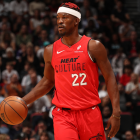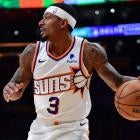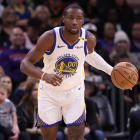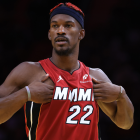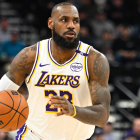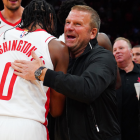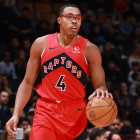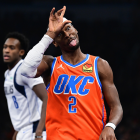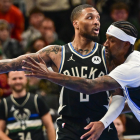Royce White, the No. 16 pick in the 2012 NBA Draft by the Houston Rockets, was advised by his doctor to abandon his hoop dreams just three years ago because of a debilitating anxiety disorder.
That was one of many revelations in a remarkable Grantland.com video documentary of White's draft night experience.
"My doctor told me when I was 18," White remembers in the video. "She looked me right in the face and said that basketball might not be what's best for you. Because this industry is built to defeat somebody like you. I want people to see that you can deal with your disorder and chase your dream."
White was a standout at Iowa State University, averaging 13.4 points, 9.3 rebounds and 5.0 assists per game as a sophomore last season. But his path to the pros was a difficult one and included a theft charge and a suspension while at Minnesota. His transfer to Iowa State was initially hindered by scholarship eligibility issues.
Throughout it all White was dealing with generalized anxiety disorder, a disorder, according to the Mayo Clinic, that is marked by "ongoing anxiety that interferes with day-to-day activities." The video portrays White's symptoms clearly: he constantly worries, is uncomfortable in front of a crowd and in a room full of people, and is terrified to step foot on an airplane. He points out that both his mother and grandmother have dealt with severe anxiety issues as well.
"Panic attacks are like, if you have one you are susceptible to another one," he says. "Your mind races and the adrenaline starts to pump. The adrenaline is so powerful it makes your heart beat faster. That sends it back to your mind, and you're like, my heart is beating. Panic on top of panic on top of panic. It feels like you're dying."
The video, of course, documents what is likely one of the highest-stress moments of White's life, as he waits to find out where he will land on draft night. His agent is shown calling him with news that if the Rockets don't select him with their picks at No. 16 or No. 18, he could be in for a free fall. This bad news comes after White has already isolated himself in a small office, away from a group of people watching the draft on television because the situation was making him uncomfortable. That desire to escape was shown earlier, as well, as he tried to coach himself into meeting with a gym full of children.
"I can't go in there," White says, looking through a gym window and pacing back and forth, in a scene that's difficult to watch. "I can't do it. I can't show my face right now. There's love in that room but the way my brain feels, that's fear. I'm working myself to get in there though."
As White's college coach, former NBA player Fred Hoiberg, makes the case that White should be a top-10 talent based on his abilities and wonders openly how he will handle the transiton to the NBA, White blames his falling stock on his anxiety disorder.
"I've played against the best," he says. "Presumably the No. 1 pick is Anthony Davis. Shortly thereafter is Michael Kidd-Gilchrist. These are guys that I've outperformed time and time again. Unfortunately, because of my mental illness, I'll probably slip out of that range that those guys are in."
Rockets coach Kevin McHale is revealed as White's biggest advocate while that other members of Houston's basketball operations department see him as "too risky." McHale evidently wins the day and White, of course, is elated once his name is called at No. 16.
"That's as scared as I've been in a long time," he says, after hugging his mother. "They took a chance on me. They didn't have to."
But reality quickly sets in. White must fly to Houston to meet with the team the next day. It will be the first of dozens of flights he will take every year that he's in the league.
"Of course I'm worried about how much I have to fly in the NBA," he admits. "I'm very worried about the schedule. I just don't like to fly. I'm very scared. Bottom line."
White apparently made it through that flight. His transition to the pro game has gone well so far. He was a standout at this year's Las Vegas Summer League, where he averaged 8.4 points, 7.2 rebounds and 3.6 assists per game.
His journey is clearly different than that of the average NBA player. White's selection feels less like a coronation and more like an opening of Pandora's box. His desire to succeed against the odds is crystal clear, but the regularity and severity of his symptoms are not trivialities. And, his doctor was right: the cutthroat NBA, where production under pressure is the most highly-coveted gift, is a living Hell for those with mental disorders.
That White was willing to open up about his struggles is remarkable in an NBA player culture that is incredibly conformist. He's done a real service to other athletes who might be struggling with similar conditions by revealing so much about himself. The lasting feeling here, though, is that his story is far from over, and that it could, if things don't break correctly, get even more difficult to watch.
You can't help but root for White. But you can't help worrying about him, either.








